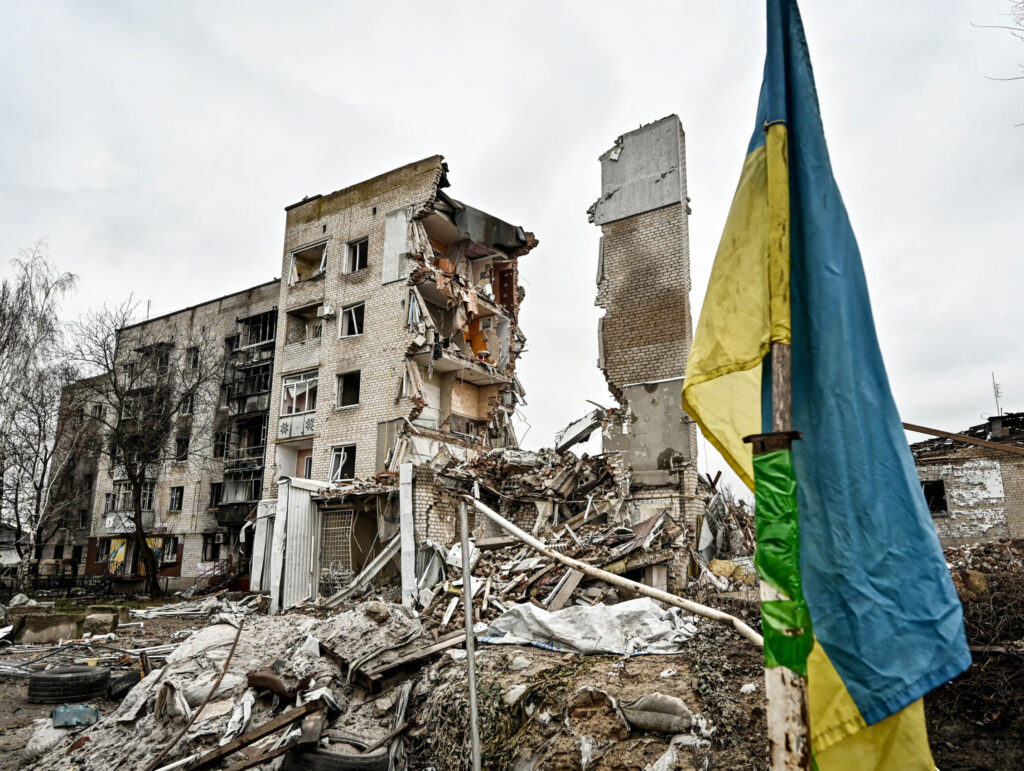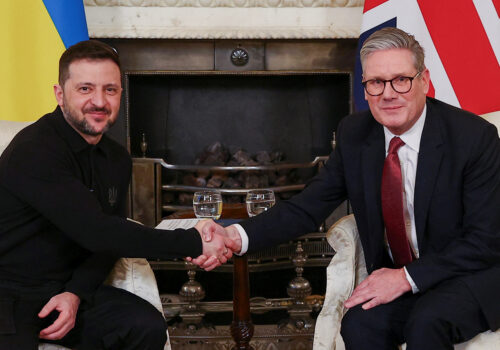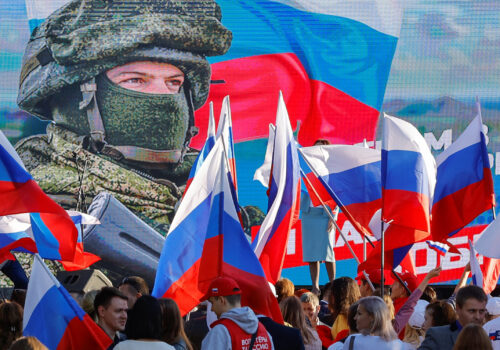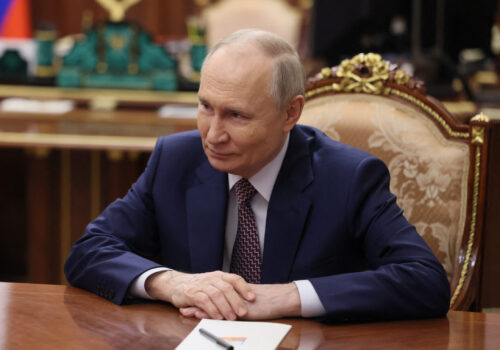Nobody wants peace in Ukraine more than the Ukrainians themselves. But having experienced the horrors of modern warfare, Ukrainians also desperately seek assurances that the current nightmare will never be repeated. This is why Ukrainian officials continue to insist that any peace agreement must include credible security guarantees for their country. These guarantees must be multifaceted, encompassing a range of components to ensure their effectiveness.
At present, the international discussion over security guarantees for Ukraine is focused primarily on potential military alliances, peacekeeping missions, and the strengthening of the Ukrainian Armed Forces. This makes perfect sense as Western leaders seek to address the largest European invasion since World War II. However, the ongoing role of sanctions to help maintain peace in the years to come should also be explored in greater detail.
Sanctions have long been viewed as a tool to pressure Russia and force Putin to rethink the invasion of Ukraine. They can also play a part in longer term efforts to limit the potential for further Russian aggression. Sanctions can be used in a practical sense to limit Moscow’s ability to wage war, and can also serve as part of broader policies designed to deter the Kremlin and provide Europe as a whole with a greater sense of security.
Stay updated
As the world watches the Russian invasion of Ukraine unfold, UkraineAlert delivers the best Atlantic Council expert insight and analysis on Ukraine twice a week directly to your inbox.
The issue of removing existing sanctions in exchange for Russian compliance with peace-building steps is already under discussion. Even at this early stage in the US-led peace process, there are signs of diverging opinions on opposite sides of the Atlantic with regard to the use of sanctions as a tool to bring Russia to the negotiating table. Moving forward, unity on sanctions policy will be crucial.
Many if not most of the current sanctions measures imposed on Russia since 2022 in response to the full-scale invasion of Ukraine are likely to remain in place until a peace agreement can be implemented. In the postwar period, it will be important to maintain or impose targeted sanctions that can restrict Kremlin access to cutting edge military technologies. This will help limit Russia’s ability to rearm.
Countries across Europe are already debating significant increases in defense spending, with many governments planning to invest in expensive air defense systems in order to guard against the kind of Russian bombing campaigns they have witnessed in Ukraine. While these air defense upgrades are clearly necessary, it would also make sense to take steps that could potentially prevent Russia from replenishing its missile and drone arsenals by denying Moscow the ability to acquire key components in large quantities.
Eurasia Center events

In addition to baseline sanctions on military technologies, Western leaders should also explore the possibility of agreeing on comprehensive sanctions packages to be triggered in the event of renewed Russian aggression against Ukraine or elsewhere. A credible rapid response mechanism would send an unambiguous message to Moscow regarding the inevitable and severe economic consequences of further invasions.
This approach could build on the sanctions experience of the past three years. Western policymakers could increase collaboration to better identify Russia’s vulnerabilities and address potential loopholes, such as the role of third party intermediaries in bypassing sanctions measures. Much would depend on the readiness of participating countries to work together in order to present the Kremlin with a united front.
No sanctions measures, whether imposed or implied, can ever hope to fully replace the hard power of military deterrence. Russian expansionism and the isolationism of the current US administration mean that a high degree of European rearmament is already inevitable. This also means that the Ukrainian military will likely remain at the heart of Europe’s new security architecture for many years to come, and will be a major focus for defense sector investment. At the same time, tools such as sanctions can help further deter the Kremlin.
There is currently no consensus over the impact of sanctions on efforts to end Russia’s full-scale invasion of Ukraine. Nevertheless, with sufficient political will and Western unity, sanctions can become an important component in postwar efforts to safeguard Ukraine’s security and provide Europe with a degree of stability. This approach is economically appealing. While expanding defense budgets will significantly increase the burden on European taxpayers, sanctions are the single most cost-effective way of containing Russia and enhancing international security. As such, they should be utilized to their maximum potential.
Dr. Ilona Khmeleva is the Secretary General of the Economic Security Council of Ukraine (ESCU).
Further reading
The views expressed in UkraineAlert are solely those of the authors and do not necessarily reflect the views of the Atlantic Council, its staff, or its supporters.

The Eurasia Center’s mission is to enhance transatlantic cooperation in promoting stability, democratic values, and prosperity in Eurasia, from Eastern Europe and Turkey in the West to the Caucasus, Russia, and Central Asia in the East.
Follow us on social media
and support our work
Image: A Ukrainian flag is seen near a section of an apartment building destroyed in Orikhiv, Zaporizhzhia region, southeastern Ukraine. (Photo by Dmytro Smolienko/Ukrinform/Sipa USA)





